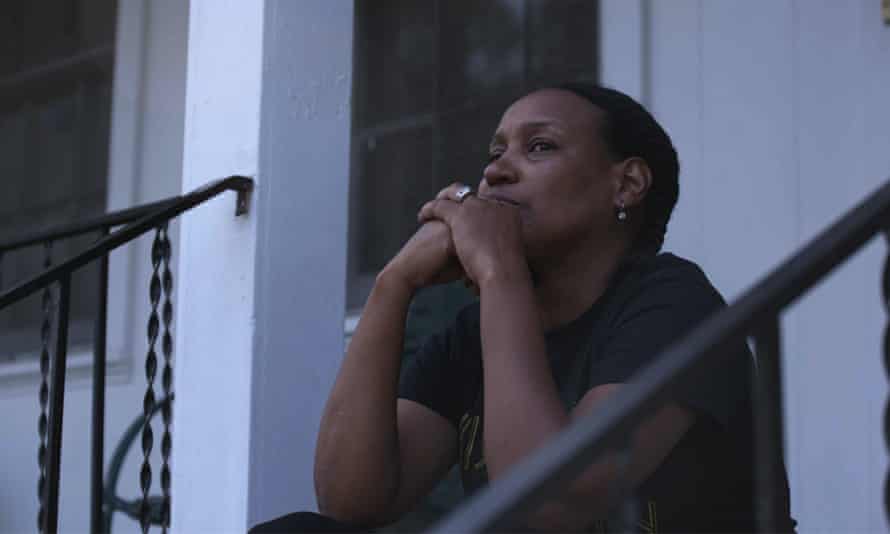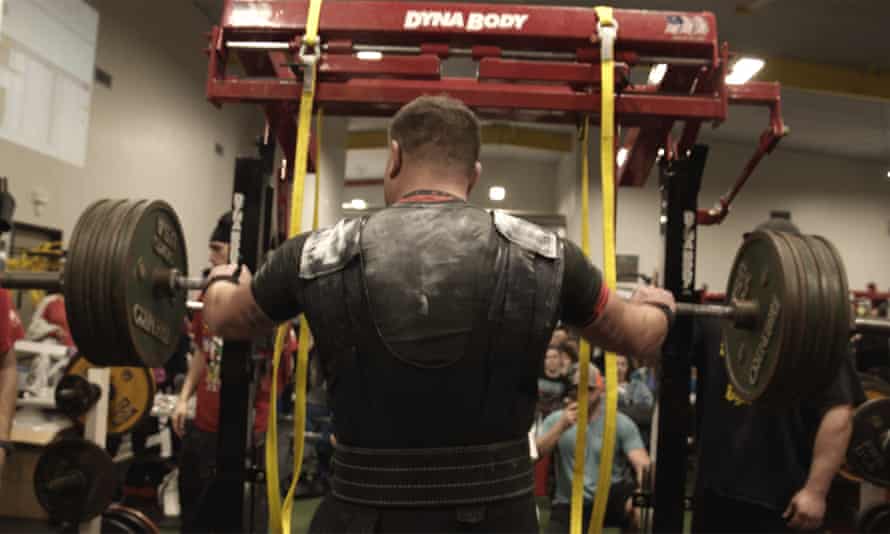In On These Grounds, a long-reaching, insightful, and annoying documentary about police brutality in the public education system, represents Ben Fields, former school resources officer. Fields, a bulky and defensive white police officer, looks meekly into the camera and clinically explains his actions as he confronts a 16-year-old black student identified as Shakara in Spring Valley, high in South Carolina. The violent incident, captured on multiple videos, immediately went viral and resulted in his dismissal.
Fields arrived at Shakara’s classroom on October 15, 2015 after a math teacher accused the young student of being a disorder. When Shakara refused to leave her desk, Fields wrapped his arm around her neck, tossed her to the floor, hurled her across the classroom, and put his knee on her as he made his arrest. He also arrested a classmate, Niya Kenny, for speaking out against the use of force Shakara left with a carpet burn over her right eye, a hairline crack on her wrist, and trauma that would take her for years.
You’ve probably seen the videos that Kenny and her classmates recorded, but you’ll be forgiven if you don’t remember the specific incident involved. There were so many of them: The 2016 video of 12-year-old Janissa Valdez slammed to the floor, leaving her unconscious; the 2017 video in which 15-year-old Jasmine Darwin was knocked down in a cafeteria and suffered a concussion; the 2019 video of officer Zachary Christensen pinning an 11-year-old to the ground in Farmington, New Mexico, and so on. Just as I’m talking to Garrett Zevgetis, director of On These Grounds, about Zoom, there’s a new video of a California school resource officer knocking 16-year-old Mikaila Robinson to the ground.
The problem is systemic, which is why activist organizations continue to urge the police to be removed from US schools. But Fields and the majority in South Carolina who defend police behavior on campus and beyond refuse to believe that either he or the system is to blame. Instead, they are hacking on Shakara, a foster child, and anything she may have done to bring this violence upon herself.
“You look at everyone than a series of individual cases, ”says Zevgetis. “If you only look at it as an isolated case, you don’t have to think about the context. You can reduce it to blaming the child. “
The Zevgetis film is about dealing with such narratives with context. The documentary vacillates between intimate memories of the brutal incident and a forensic indictment of the culture that invites a racially biased criminal justice system into a similarly biased school system. Both Kenny and Shakara speak their truth on camera, supported by EveryBlackGirl founder Vivian Anderson. The activist moved from Brooklyn to South Carolina to help them fight the justice system. The two girls were charged under the troubling South Carolina school laws. Zevgetis connects all these strands with the thesis of Dr. Janae Davis said that the soil in South Carolina, where the history of slavery is buried, is absorbing trauma. “Burying this story is a metaphor for Ben Fields and anyone else who doesn’t want to think about the context of the story,” says Zevgetis.
The director also mentions a tidbit that doesn’t appear in the film. His follow-up interviews with Fields after the assassination of George Floyd produced predictable results. Fields agreed that Derek Chauvin, the former officer convicted of the murder of George Floyd, has gone too far. But, according to Zevgetis, Fields, an official who insists that neither he nor the judicial system are racially biased, was much more focused on the victim’s past. “He blamed George Floyd.”
 Vivian Anderson, founder of EveryBlackGirl in Columbia, South Carolina. Photo: Gravitas Ventures
Vivian Anderson, founder of EveryBlackGirl in Columbia, South Carolina. Photo: Gravitas Ventures
The director chats with me during a break from his bartending job at the Charles Hotel in Cambridge. The documentary business is not very lucrative, he explains, so serving drinks is a livelihood that gives him the flexibility to follow important stories as a filmmaker. He speaks humbly and also protectively of Anderson, Kenny and Shakara. He says they have become like family after years of filming together, and prior to that, spending hours talking to each other to build trust. “The most important thing is to make it clear to the subject that you will never reveal it,” says Zevgetis. He had to put that work in to tell this story, especially since as a white man he looks like so many people who blame blacks for their own oppression.
Zevgetis is open about his white male privilege and explains how he was able to exercise it along with the years he spent in the Navy, another occupying power, to gain access to Fields. “I can get into the beast’s belly,” says Zevgetis. “I knew he would be referring to me.”
But Zevgetis also admits that putting Fields in front of the camera and giving him a platform takes care because so much of what the ex-cop has to say – between the victim’s guilt and the rationalization of police brutality – can retraumatize a viewer. “Shakara, Niya [Kenny] and Vivian [Anderson] are the most important, ”says Zevgetis. “If they didn’t want Ben [Fields] in the film he would not have been in the film. “
Zevgetis says Anderson was his leading figure on the matter. The activist developed a relationship with Fields. She is seen on numerous occasions throughout the film debating and trying to educate him about how black children are criminalized for behavior that white children often get away with. Field’s refusal to really listen is an entirely different type of violence that Zevgetis wouldn’t allow. He followed the advice of his producer Chico Colvard never to let any of Fields’ arguments or rationalizations hang around unchecked. “Every time he brings up a point, we have made sure that someone after him has deconstructed this reasoning or destroyed it,” says Zevgetis.
 Ben Fields, former school resource officer, enters a powerlifting competition. Photo: Gravitas Ventures
Ben Fields, former school resource officer, enters a powerlifting competition. Photo: Gravitas Ventures
The documentary filmmaker does not pretend to be impartial. On These Grounds has a clear perspective that shines through in his interviews and clever images. Clips of Fox News presenters defending brutal police actions are laid across a swamp. As we listen to local Sheriff Leon Lott discuss the community’s trust in the South Carolina police force, the camera wanders through his office and observes an American flag carved in wood and a bison head mounted on the wall. Remember that white settlers butchered bison to starve the indigenous people of their land. Context is everything.
The film’s bias can lead to criticism, although all documentaries and journalism are inherently biased. In an article published in Canadian magazine The Walrus, Pacinthe Mattar wrote about how the media privilege and rarely question the narratives put forward by police and other government institutions. In the meantime, it is expected that on-site witness statements will have to be interrogated, confirmed and called into question.
“There is no such thing as objectivity,” says Zevgetis, before advocating his own bias.
“I always thought that a school desk was the safest place in America. There is no logic or rationalization to rip a teenage girl from attacking and throwing her across the room. For me there would never be both sides of this story. “

Comments are closed.